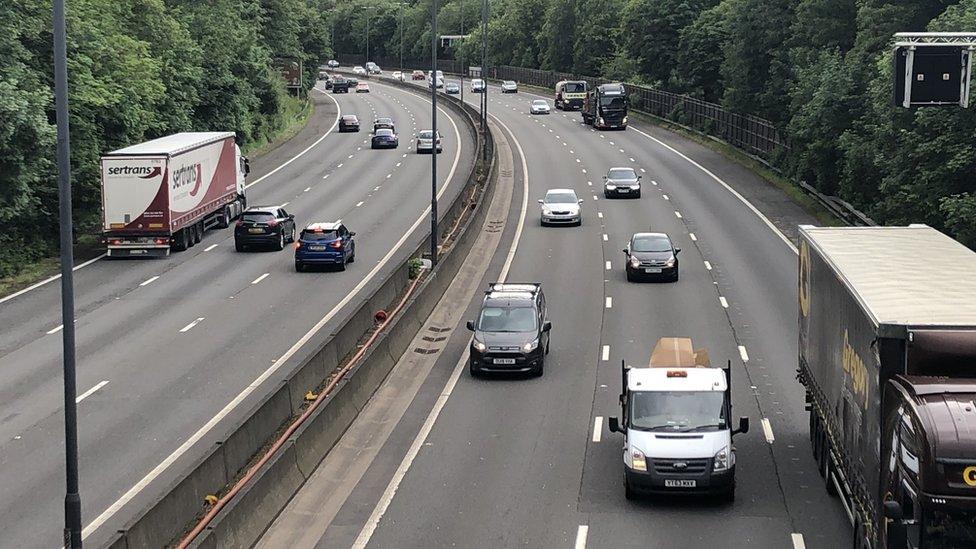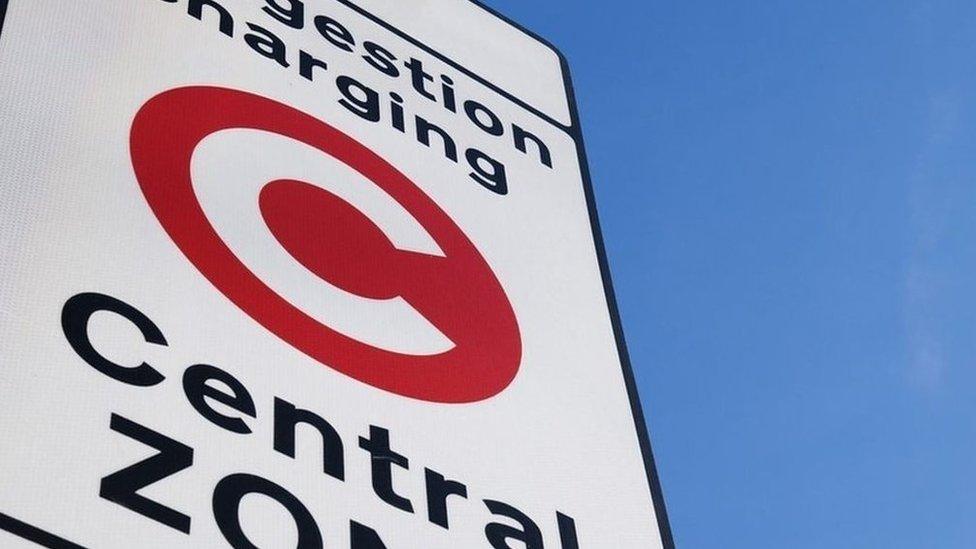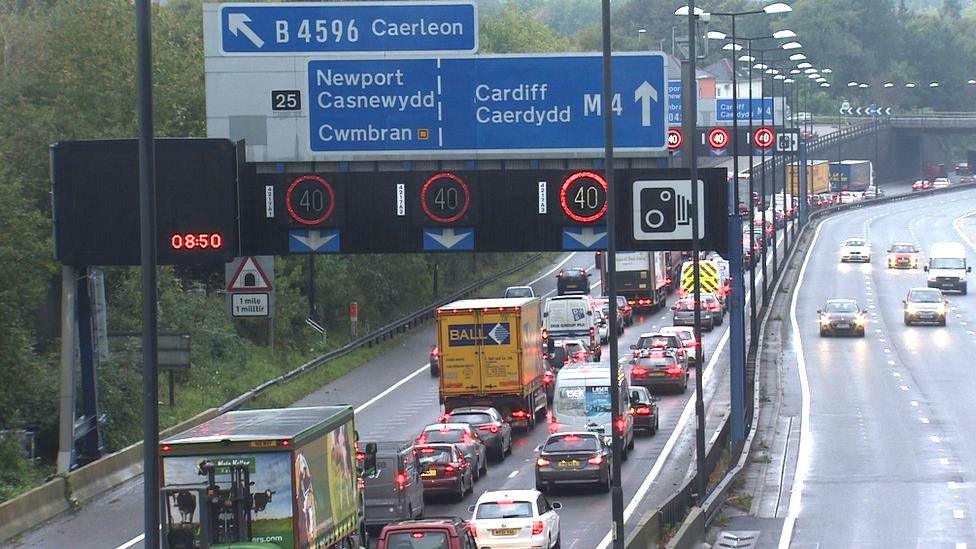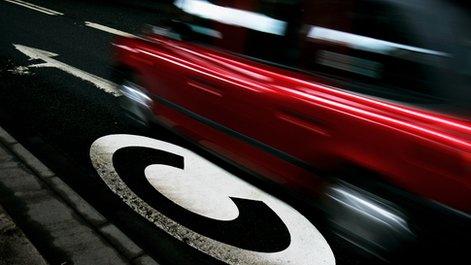Welsh road tolls and charging to be considered in review
- Published

The Welsh Government cancelled the M4 Relief Road scheme last year
A range of tolls and charges for driving in Wales are being considered by the Welsh Government.
The transport minister has commissioned an independent review that will look at options such as distance charging, congestion charging, workplace and retail parking levies.
Ken Skates said they could be needed to encourage people out of their cars into "more sustainable transport".
The Welsh Conservatives accused him of considering a "stealth Motorist Tax".
A Welsh Labour AM, Blaenau Gwent's Alun Davies, warned the party "cannot make these announcements until we have a track record of public transport success stories".
Derek Turner, formerly of Transport for London, will lead the review, which is expected to report by the autumn.
The review will look at options right across Wales and will also feed in to the ongoing commission looking at easing congestion on the M4, as well as Cardiff Council's proposal to introduce a £2 congestion charge in the capital.
Last summer, the Welsh Government decided to ditch plans for a £1.6bn M4 relief road around Newport.
Lord Burns, who is leading the commission set-up in the wake of the government's decision, said last month more investment in public transport is needed in south east Wales to ease congestion on the M4.
A congestion charge could be needed to address the issue, he added.
Increased traffic seen after the Severn tolls were scrapped has led to calls from West of England Combined Authority, on the English side of the M4, for the idea to be explored.

Congestion charging is being considered in different parts of South Wales
Speaking in a debate in the Senedd in November 2019, Transport Minister Mr Skates urged councils to consider introducing a levy on workplace parking to cut congestion.
In Nottingham, the first ten parking spaces are free with employers charged £415 a year for each one after that.
In a written statement, external announcing the Wales-wide road user charging review, Mr Skates said: "Investing in and incentivising public transport and active travel are vital in encouraging people to make less journeys by car.
"However, demand management measures may also be needed to achieve a significant modal shift from road to more sustainable transport in Wales."
"For this reason, I have commissioned an independent review into the benefits and challenges of different demand management approaches such as road user charging," he added.
The review will examine:
the costs of implementing various options and whether those costs are paid for by drivers, councils or others
an assessment of the likely acceptability of any such scheme
issues that might affect the acceptability of any road user charging policy, such as the level of the charge, the fairness of its application and how any revenues would be used
The Welsh Government said it is an initial review, designed to inform future detailed work.
Allow X content?
This article contains content provided by X. We ask for your permission before anything is loaded, as they may be using cookies and other technologies. You may want to read X’s cookie policy, external and privacy policy, external before accepting. To view this content choose ‘accept and continue’.
Welsh Conservative transport spokesman Russell George said: "We've already seen plans for a tourism tax, a vacant land tax, and a possible social care tax, from the Welsh Government so it should come as no surprise that Labour Ministers are paving the way to clobber motorists too.
"While we Conservatives have been cutting costs for motorists by scrapping the Severn Crossing Tolls, we've seen Labour politicians in Wales seeking to increase them."
Alun Davies, Labour AM, said: "I suspect that the Welsh Government (and) Ken Skates needs to demonstrate some real successes in terms of rail delivery and road policy such as the M4 and wider public transport before heading down this particular route."
- Published4 June 2019

- Published16 January 2020

- Published15 February 2013
